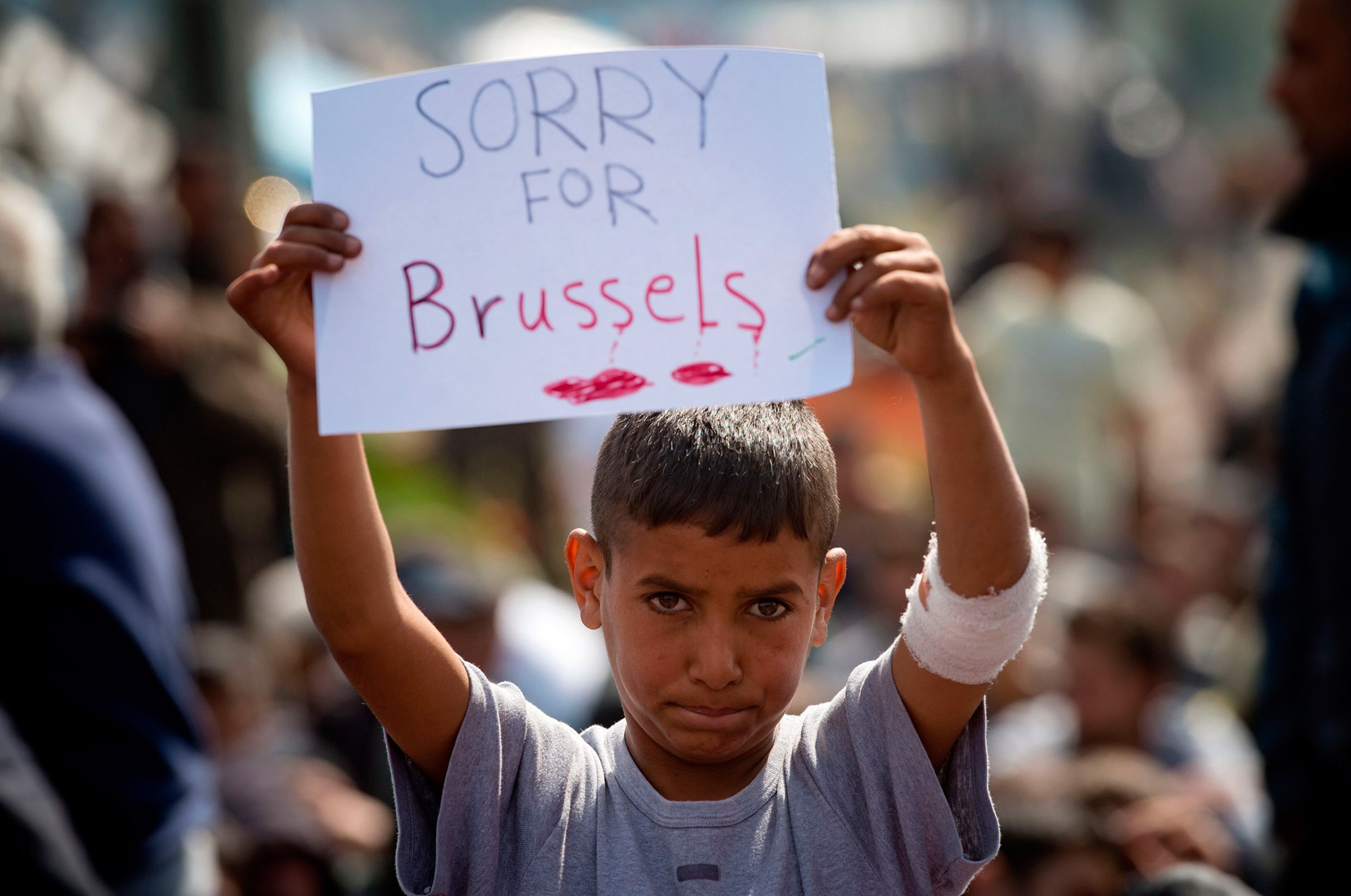
On Tuesday morning, as explosions tore through the Brussels subway system and the departures hall of the city’s airport in an attack claimed by ISIS, images of the carnage spread with the speed of the Internet through the refugee camp at Idomeni, some 2,000 km (1,250 miles) away, in northern Greece. Ammar Al Saker, a 21-year-old refugee from Damascus, saw the news on the screen of his Sony Ericsson mobile phone while sitting in his tent in the center of the camp. He started sending messages about it to his friends. “God knows what will happen tomorrow,” he typed in one text, even as another took shape in his head: “For us it will get worse.”
Read More: What to Know About Brussels Terror Attack
The refugees trekking through Europe have seen this all before. After a group of terrorists struck in Paris on Nov. 13, leaving 130 people dead, it only took a few days for the backlash to reach the asylum seekers on Greece’s northern border. Before the Paris attacks, about 5,000 a day were crossing that frontier into Macedonia on their way to Western Europe. In the days that followed, as Europe reeled from an attack that killed 130 people, that pathway began to close.
“It created a domino effect,” says Emilias Dounias, the chief of logistics at the Idomeni camp for the international charity Doctors Without Borders. “After the Paris attacks, they closed the border for all nationalities except Syrians, Iraqis and Afghans” who were trying to travel north from Greece to claim asylum in Western Europe. “They blocked Moroccans, Libyans, African people,” he says. “It was a wave.” And in the months that followed, this wave of border closures created the squalid camp at Idomeni, as thousands of migrants were bottlenecked in northern Greece.
To the refugees, who with reason see themselves as victims of terror too, this reaction was perverse. Many of them had abandoned their homes in the Middle East because of the same terrorist group targeting European capitals. The jihadists of ISIS, better known in the Arab world as Daesh, have helped force millions of people in Iraq and Syria to go abroad in search of refuge. Yet along the way, those refugees have found themselves punished for the atrocities that ISIS commits in Europe.
That punishment often takes the form of new fences and increased border guards, out of concerns over security and fears that a terrorist might slip in among the migrants. Iason Athanasiadis, a Greek political analyst and expert on the Middle East, calls this response an expression of “chaos theory’s butterfly effect,” in which one event can cause a series of disparate and seemingly illogical consequences. The terror in Brussels, he says, “will likely intensify the trend of further fortressing Western societies.”
That response may resonate with angry Europeans—but it doesn’t make much logical sense. Although at least one of the Paris attackers reportedly entered Europe by posing as a refugee, nearly all of the others, including the alleged mastermind Salah Abdeslam, who was captured in Brussels on March 18, had been born in the E.U. and held the passports of E.U. countries. They could travel freely though Europe, and no amount of scrutiny at European borders would have prevented them from carrying out their plot. [
But after the attacks in Brussels, as after those in Paris, Europeans will face the temptation to put such reasoning aside and conflate the foreign victims of terror with its homegrown perpetrators. Even in Greece, which has been among the most welcoming countries for migrants from the Muslim world, some are expecting a turn toward religious and racial profiling after the bombings in Brussels. “Given the religion of the overwhelming majority of those coming or attempting to come to Europe, many will hasten to connect Islamist terrorism with the immigration issue,” the liberal Greek newspaper Kathimerini said in an editorial on Tuesday.
Read More: Brussels Bombing Reveals European Security Dilemma
Greece will have to pay the price. Under a deal agreed last week between the European Union and Turkey, the Greek government will have to send back any migrants who reach its territory from Turkey by boat. That has already begun to create bottlenecks on the Greek islands where the refugees come ashore, as local authorities lack the resources to register and accommodate the new arrivals pending deportation. After the attacks in Brussels, Greece may well feel pressure from other European countries to sequester all the Muslim asylum seekers coming from Turkey.
“It is obvious that that this new attack will dramatically affect the management of the refugee wave still in process,” the left-leaning Athens newspaper To Vima wrote in an editorial following the bombings in Brussels. “The already existing current of xenophobia and racism will become stronger, extreme nationalist voices that demand the closure of borders will become stronger.”
Scenes From the Aftermath of the Brussels Attacks
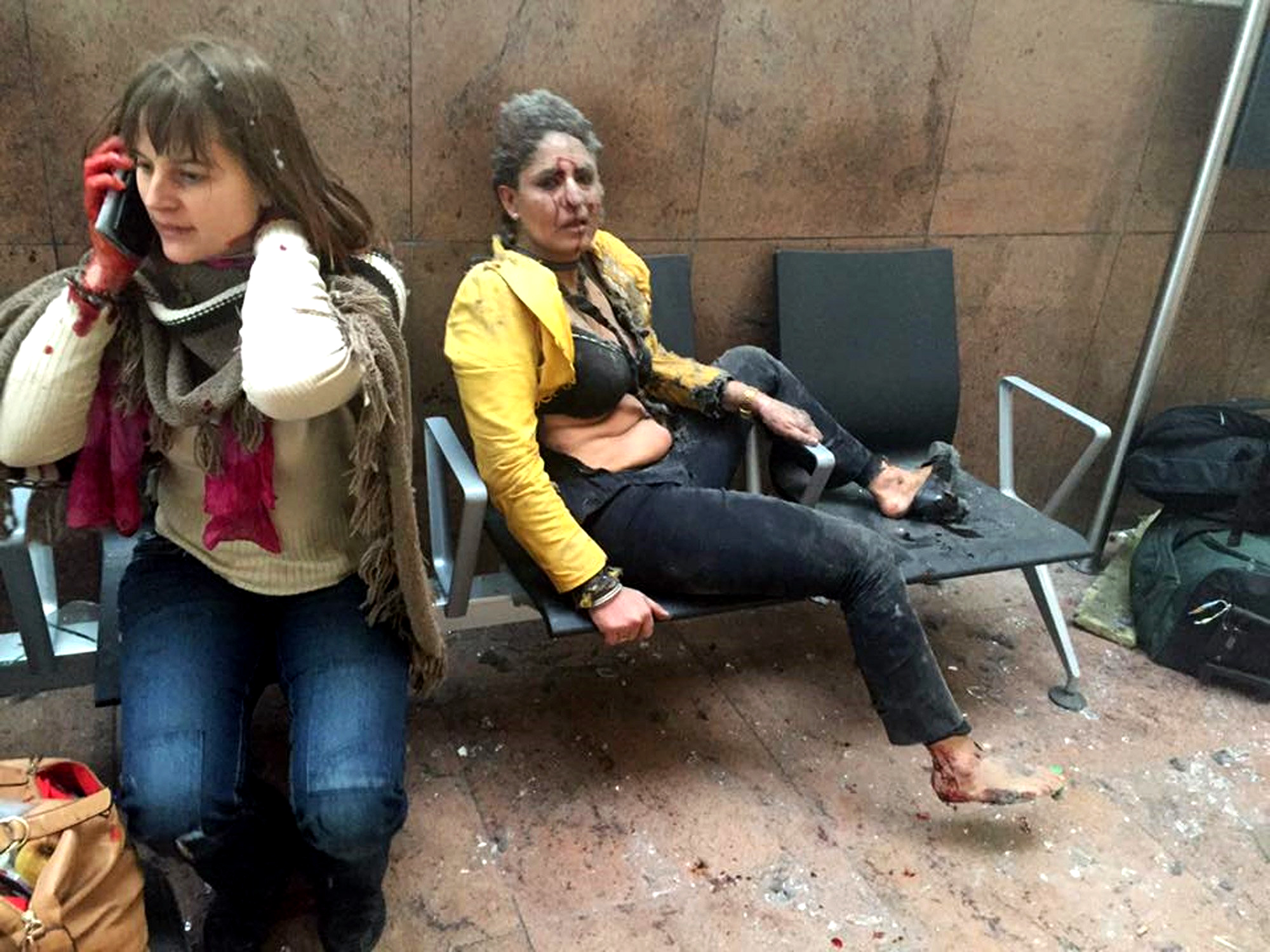
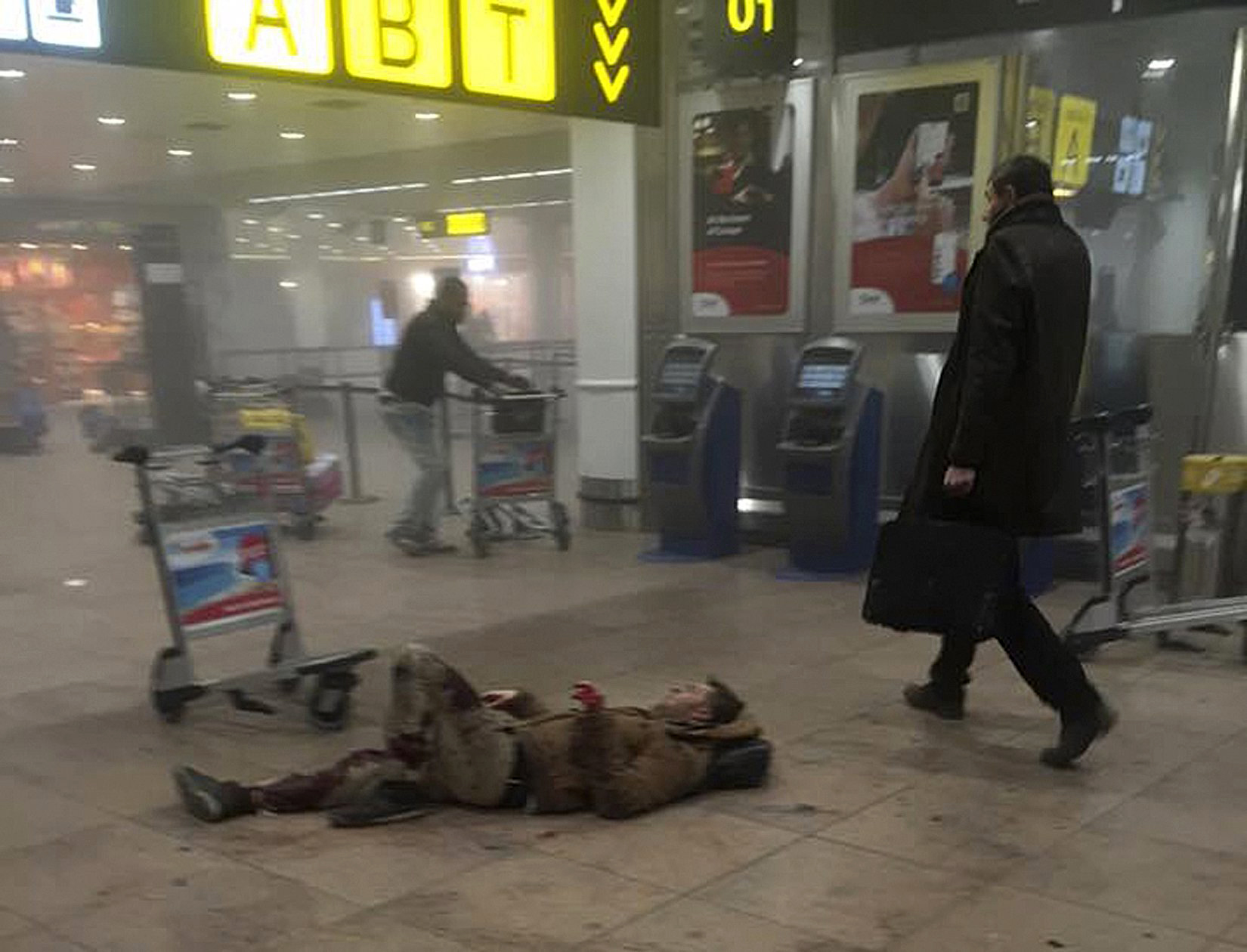
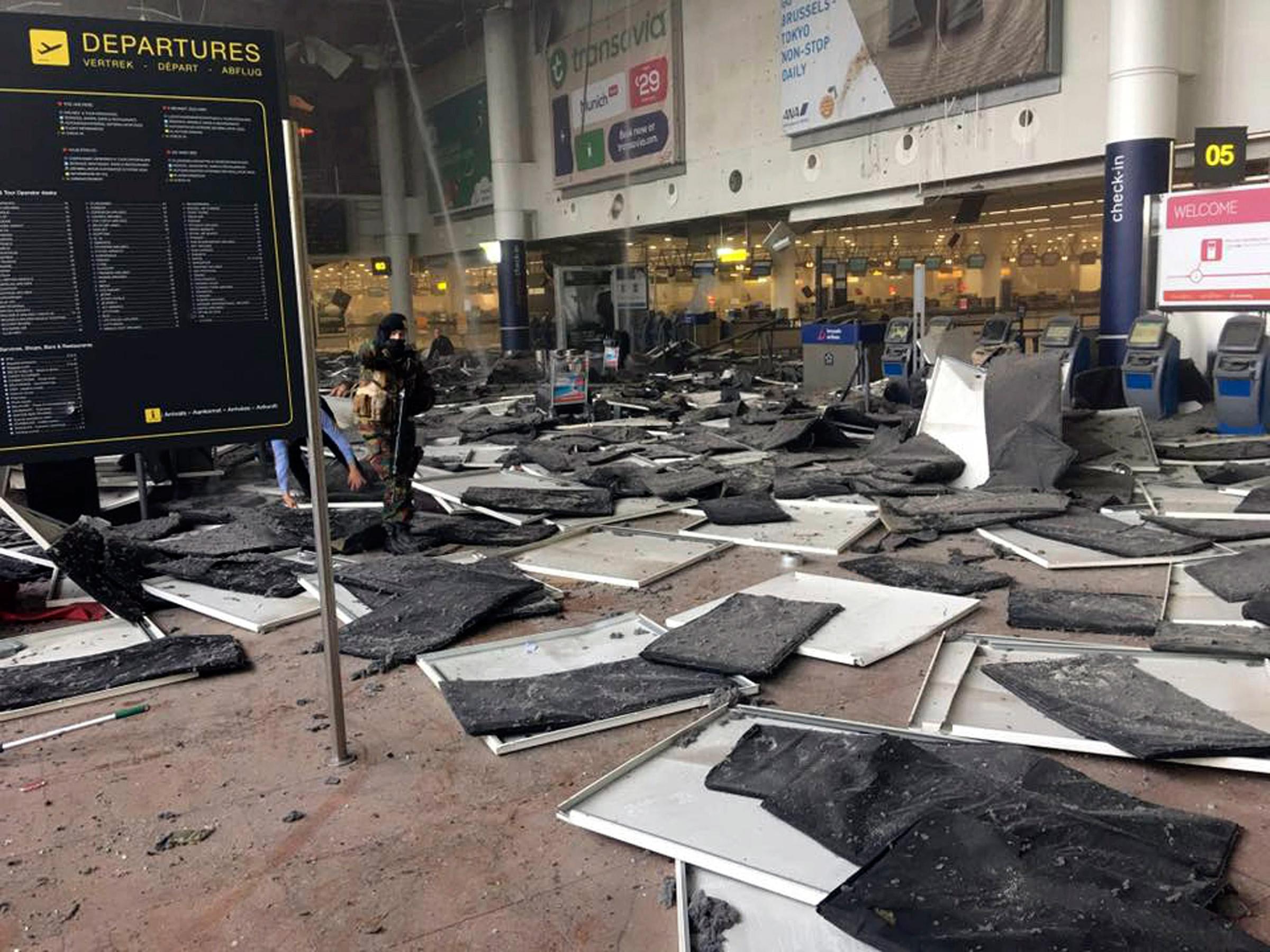
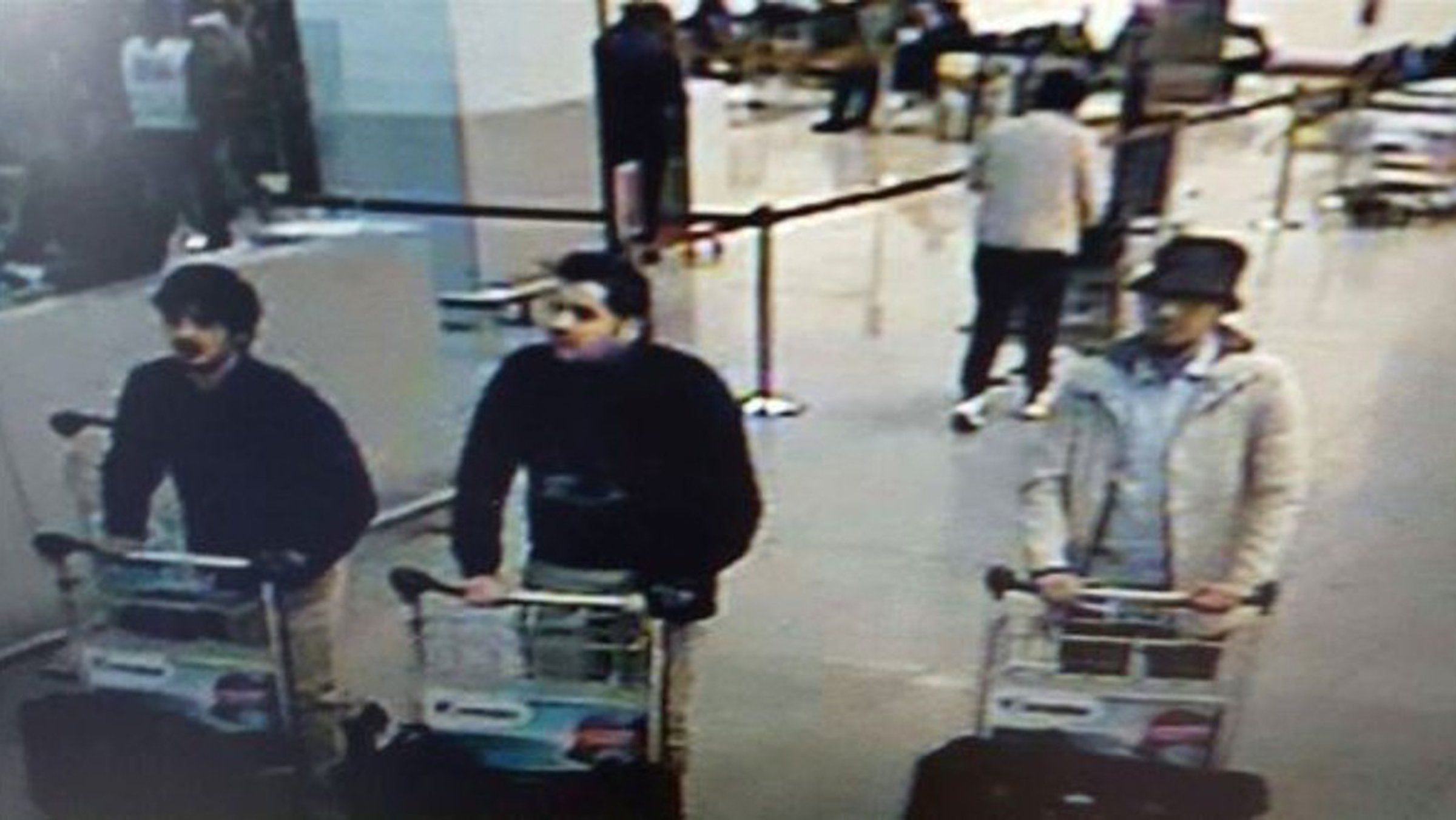
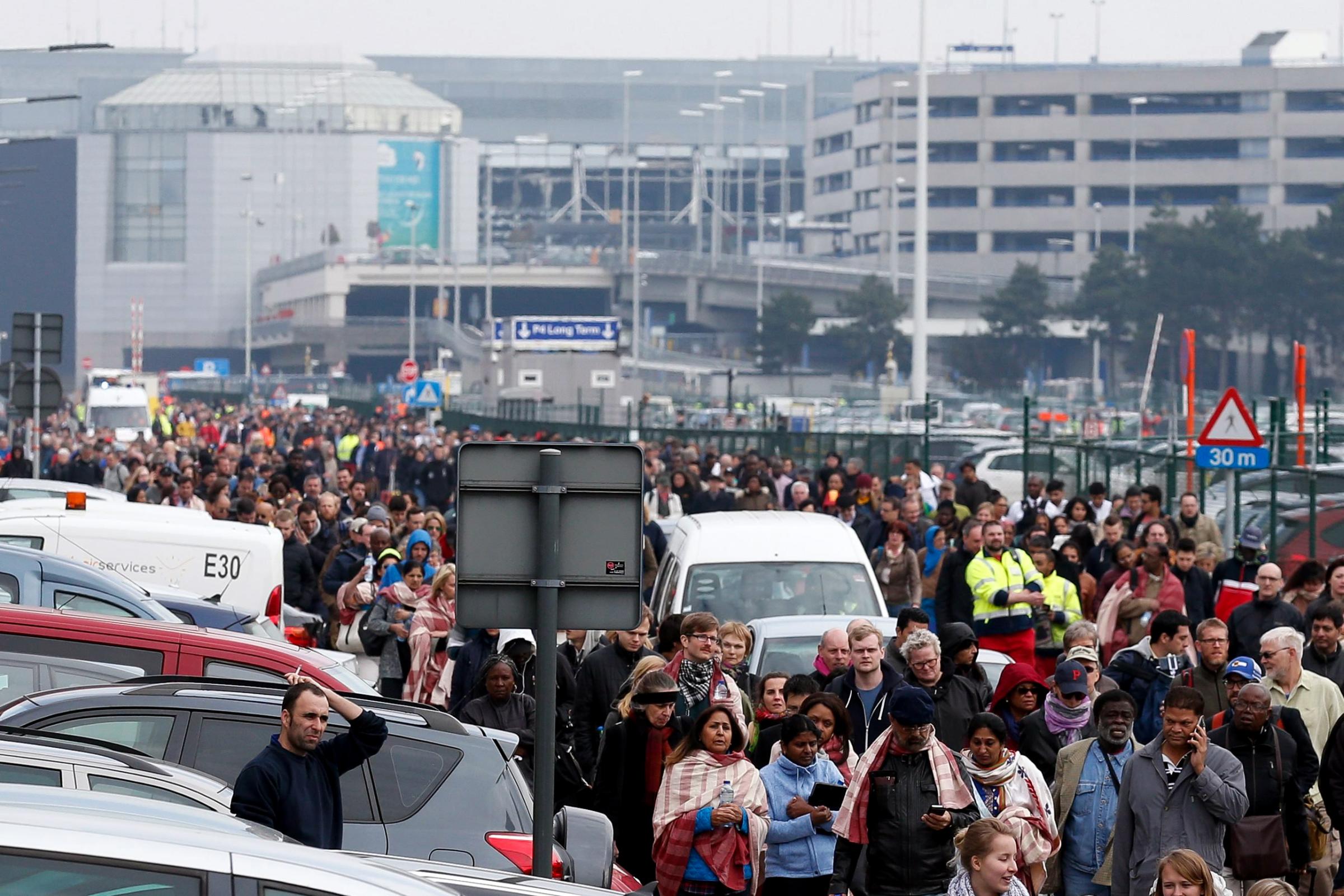
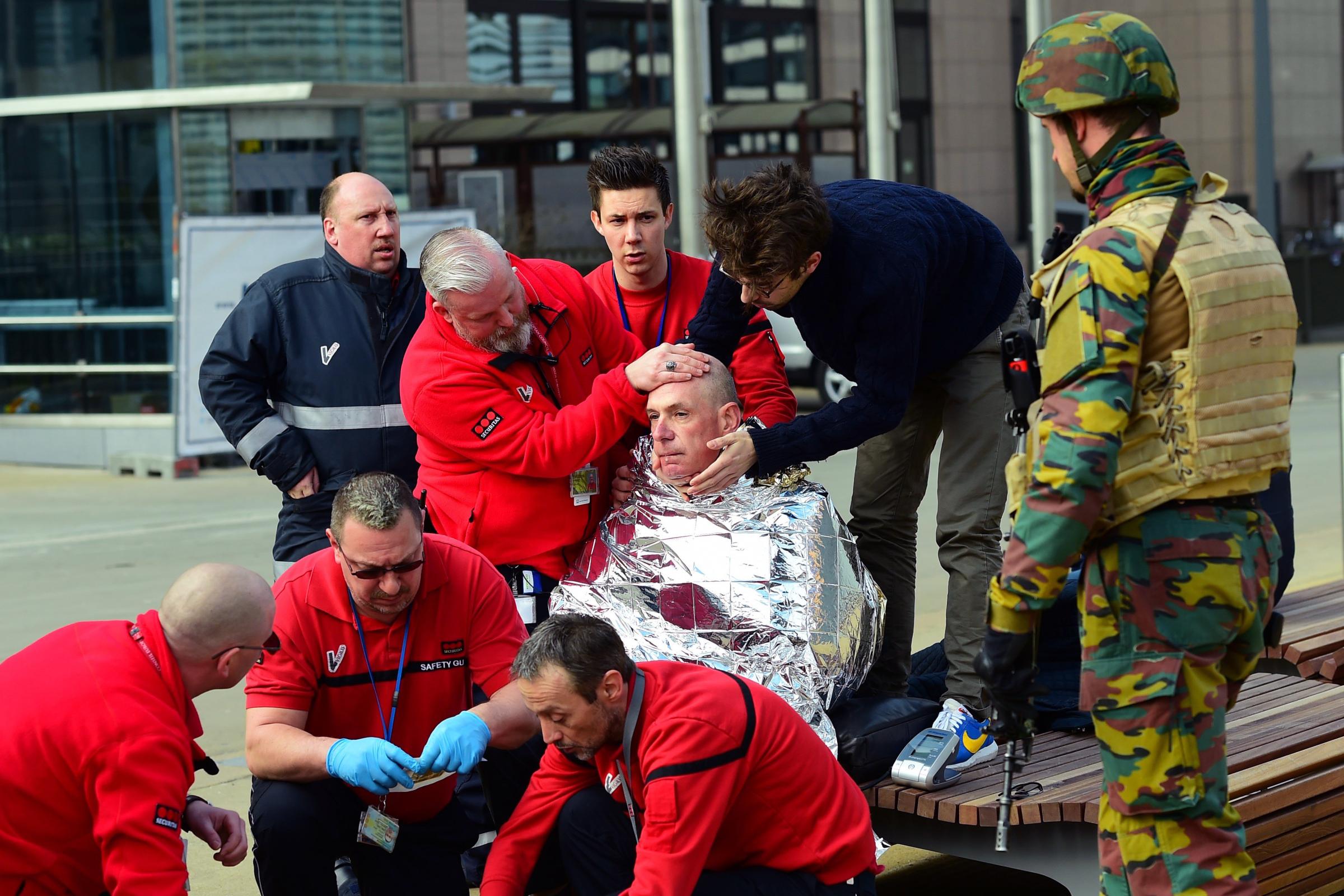
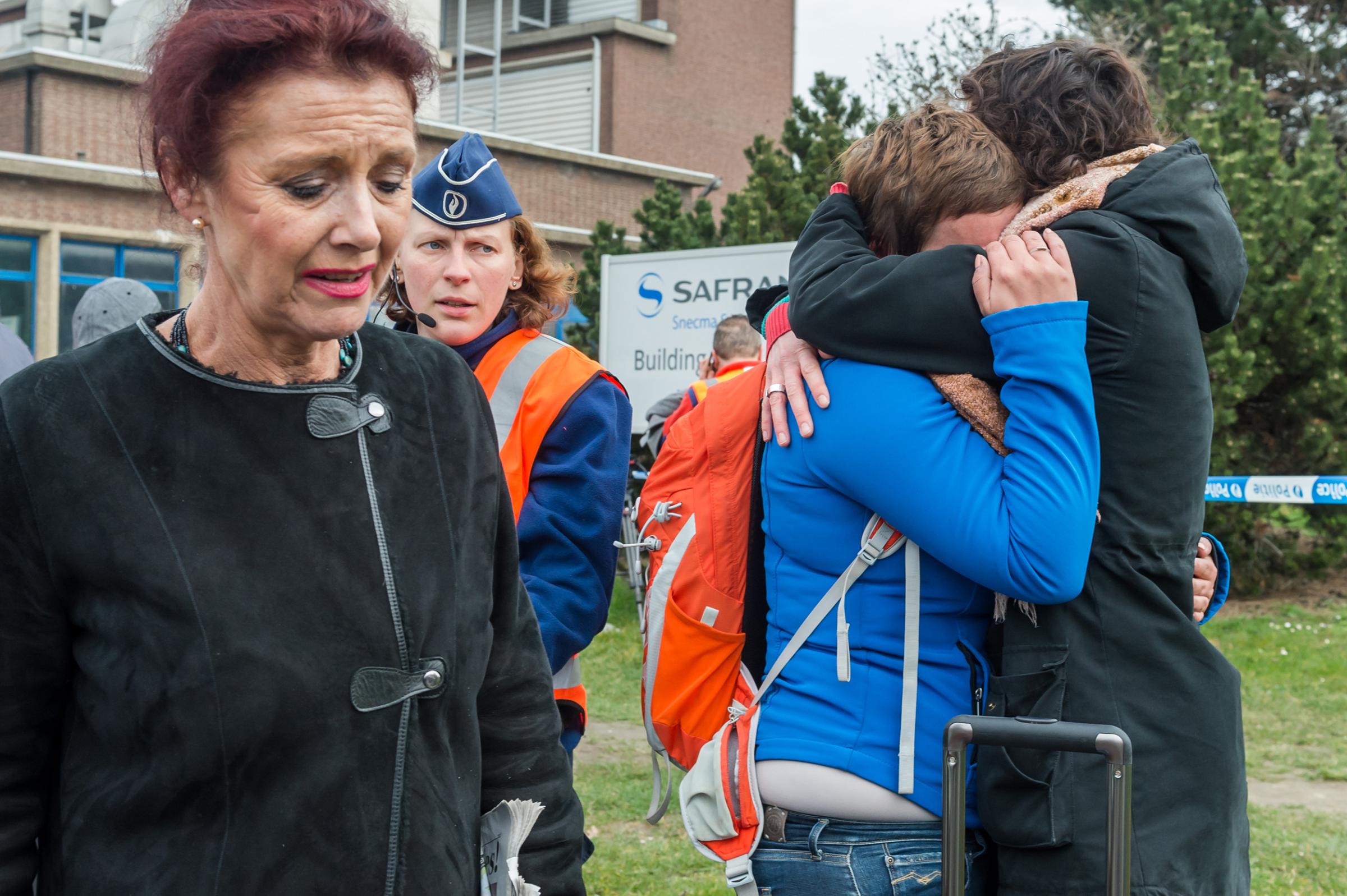
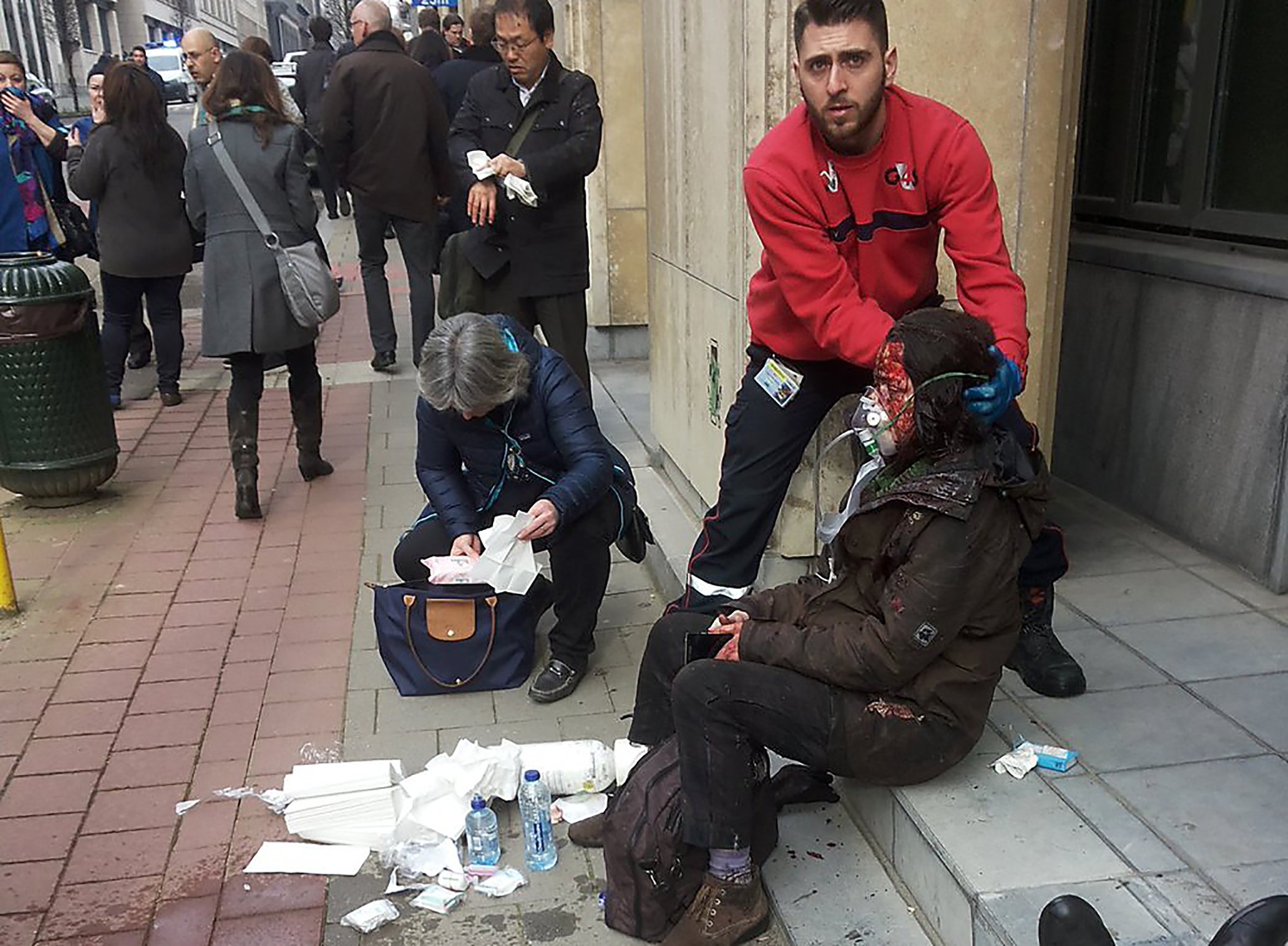
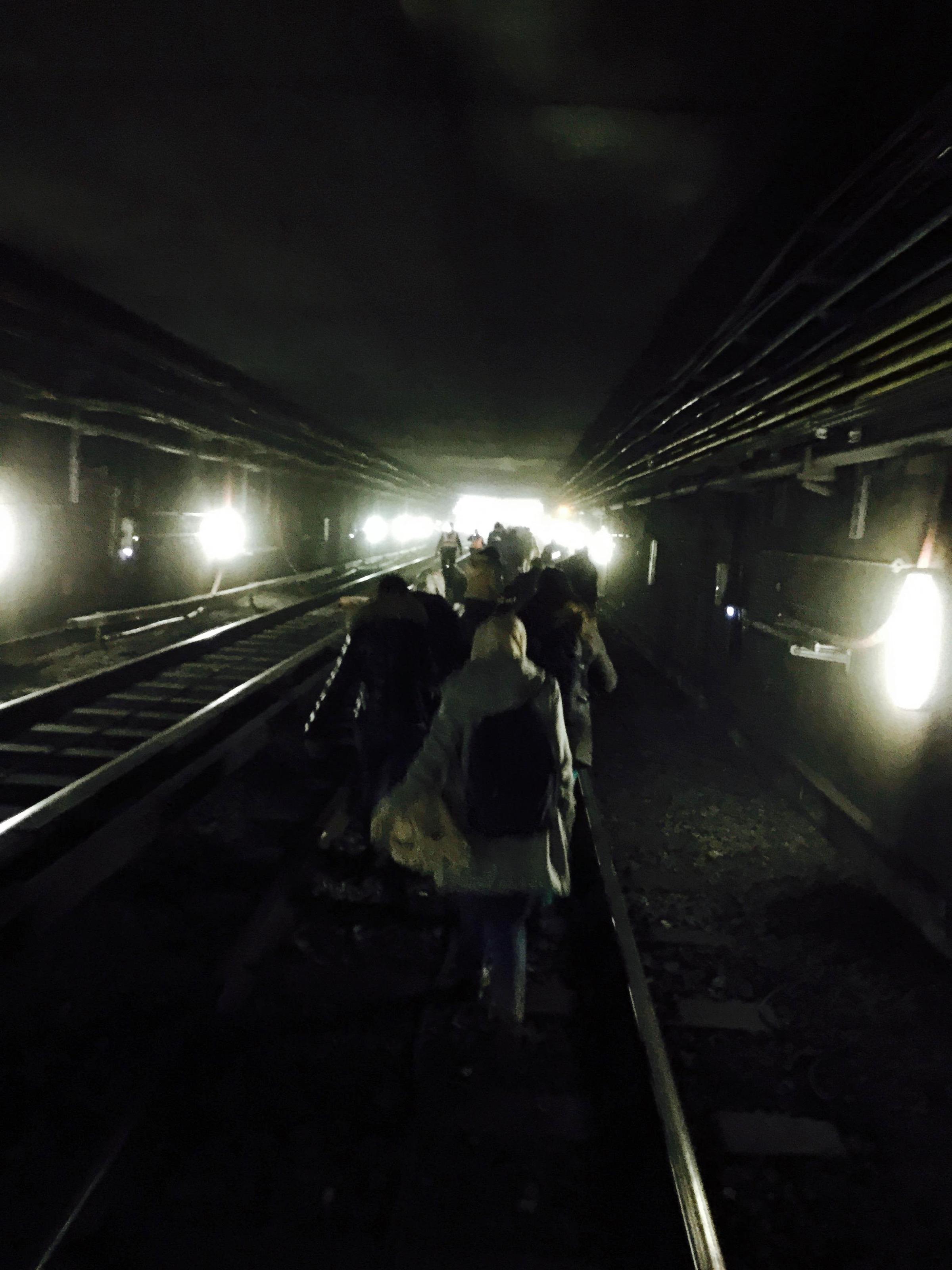
Alexis Tsipras, the left-wing Greek Prime Minister, pledged to resist anyone who calls for Europe to become a fortress with Greece at its gates. “We can’t allow fear, religious hatred and racism to prevail in Europe,” he wrote on his Twitter feed.
But in many corners of Greek society, it is prevailing already. More than 40,000 asylum seekers remain stranded in Greece, as the Balkan countries to the north have refused to allow them to pass on their way to Western Europe. Their tents are now a common sight along Greek highways and city squares, and nationalist voices calling for their internment or expulsion have begun to rise.
“In a time of poverty, recession and foreign control, it is only a matter of time before the faster-growing demographic gets the upper hand,” the right-wing Greek newspaper Demokratia wrote in an editorial on Tuesday. “Will our country be able, then, to integrate the Afghan Taliban and members of ISIS, who enforce their religious beliefs with beheadings and terrorist attacks? It is simply impossible.”
As they continue their exodus to Europe, this is the type of rhetoric that Muslim migrants will have to face after the Brussels bombings. At each frontier and in the office of every European bureaucracy they encounter, it will likely mean a lot more scrutiny and suspicion. This may not make Europe any safer. But it is sure to make life a lot more miserable for those seeking Europe’s protection from fear.
Read More: European Officials Struggle with Red Tape and Terrorism
More Must-Reads from TIME
- Cybersecurity Experts Are Sounding the Alarm on DOGE
- Meet the 2025 Women of the Year
- The Harsh Truth About Disability Inclusion
- Why Do More Young Adults Have Cancer?
- Colman Domingo Leads With Radical Love
- How to Get Better at Doing Things Alone
- Michelle Zauner Stares Down the Darkness
Contact us at letters@time.com